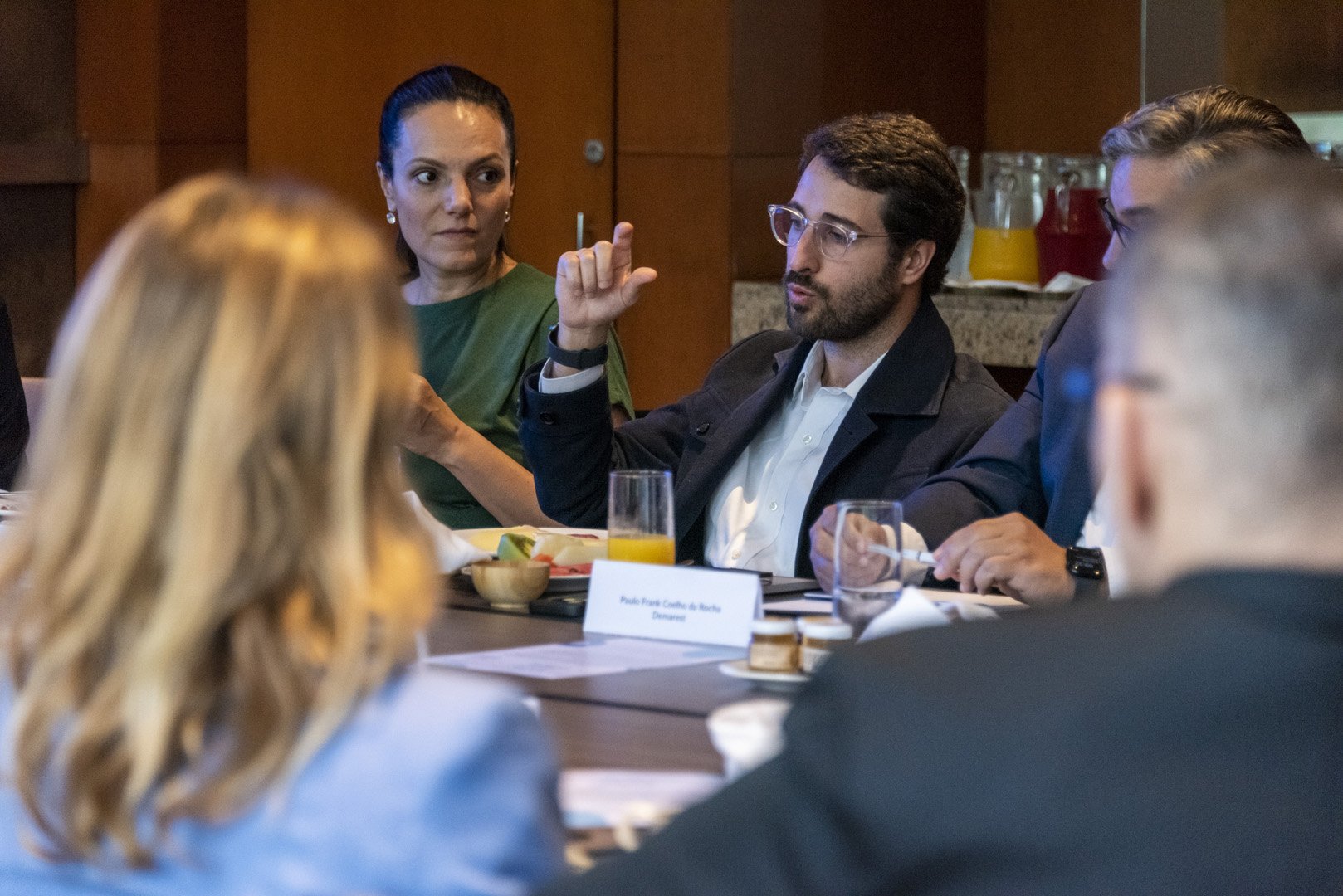Event Report
Lex Mundi brought together a pivotal gathering of legal professionals from various sectors. The aim was to engage in a thoughtful dialogue regarding the dynamic landscape of Global Crosswinds, Stakeholderism and the role of the General Counsel nowadays.
The event provided an opportunity to delve into the benefits and challenges of ESG integration in a business agenda. Attendees acknowledged the substantial advantages, including heightened brand reputation, enhanced risk management, and broader access to capital. However, the discussion highlighted a key challenge — the struggle to effectively address the ‘S,’ the social aspect of ESG. While environmental and governance concerns are more quantifiable and regulated, embodying meaningful social impact poses a unique and intricate challenge.
A significant consensus emerged regarding the potential of tax incentives as potent tools to encourage ESG compliance. Governments are increasingly embracing this approach, offering tax breaks and financial incentives to companies actively aligning with ESG principles. Participants recognised this as a strategic way to accelerate ESG adoption within the corporate landscape, encouraging organisations to embed sustainability at the core of their business strategies. Nonetheless, there are various challenges. ESG initiatives often have long-term benefits, but companies are often pressured to focus on short-term financial gains to satisfy shareholders and meet quarterly targets. Furthermore, the upfront costs associated with implementing environmentally sustainable practices and establishing robust reporting systems (such as: adopting sustainable technologies, conducting audits, hiring specialised personnel, implementing monitoring systems, etc.) can act as a barrier or discouragement for companies to fully commit to integrating ESG principles.
An intriguing aspect that captured the attention was the shifting landscape of mergers and acquisitions (M&A) due to the growing influence of ESG considerations. Investors and acquirers are now giving precedence to companies exhibiting strong ESG performance, prompting a reevaluation of due diligence processes and deal structures. M&A strategies are evolving to accommodate the changing expectations of stakeholders, who are increasingly emphasising sustainability and responsible business practices as vital components of successful transactions.
The discourse also delved into the varying levels of commitment among investors and vendors concerning ESG compliance. While some stakeholders exhibit a deep commitment and prioritize ESG-aligned initiatives, others perceive them merely as regulatory checkboxes. Bridging this gap in commitment and creating a harmonised approach to ESG integration emerged as a critical challenge in fostering a sustainable business ecosystem.
A thought-provoking aspect illuminated during breakfast was the paradox faced by companies ‘actively engaged’ in their ESG journey. Balancing immediate business needs with long-term sustainability goals was acknowledged as a significant challenge. These organisations often encounter scrutiny and pressure from both investors and stakeholders. The discussion underscored the necessity for transparent communication and a clearly defined roadmap for ESG integration to navigate this paradox effectively.
In conclusion, the Brazil GC Breakfast Discussion 2023 was an enriching and insightful forum that showcased the evolving landscape of ESG and its profound implications on corporate decision-making and M&A activities. It emphasised the importance of concerted efforts from all stakeholders, with general counsel playing a pivotal role in steering organisations towards a sustainable future. This involves addressing challenges, embracing tax incentives, and navigating the intricacies of stakeholderism within the global crosswinds of ESG.

